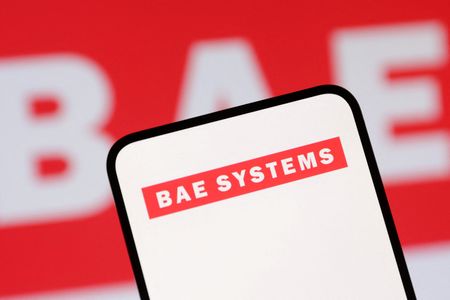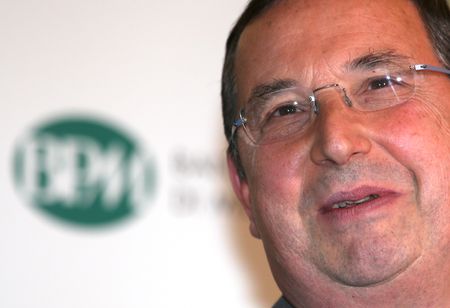LONDON (Reuters) -Britain announced on Tuesday it was prepared to recognise a Palestinian state in September unless the Israeli government takes substantive steps to end the “appalling situation” in Gaza and meets other conditions.
Prime Minister Keir Starmer’s decision follows in the footsteps of France, after President Emmanuel Macron confirmed his country’s intention to pursue recognition of a Palestinian state and to encourage other partners to do the same.
Below are some details about Starmer’s announcement, driven by a rising global outcry over starvation and devastation in Gaza amid Israel’s war against Hamas militants, as well as other nations’ position on having Palestinian statehood recognised.
WHAT DID STARMER SAY?
Starmer said Britain would make the move at the United Nations General Assembly unless Israel took substantive steps to allow more aid to enter Gaza, makes clear there will be no annexation of the West Bank, and commits to a long-term peace process that delivers a “two-state solution” – a Palestinian state co-existing in peace alongside Israel.
He said his government would make an assessment in September on “how far the parties have met these steps”, but that no one would have a veto over the decision.
The prime minister reiterated that there was “no equivalence between Israel and Hamas and that our demands on Hamas remain, that they must release all the hostages, sign up to a ceasefire, accept that they will play no role in the government of Gaza, and disarm”.
WHY DID STARMER DO THIS?
Successive British governments have said they will formally recognise a Palestinian state when the time is right, without ever setting a timetable or specifying the necessary conditions.
Starmer said the move was timed to affect the situation on the ground in Gaza at a moment when the prospect of a two-state solution was under grave threat.
A growing number of lawmakers in Starmer’s Labour Party have been asking him to recognise a Palestinian state to put pressure on Israel.
HOW COULD THIS AFFECT U.S.-UK RELATIONS?
Starmer has been building warm relations with U.S. President Donald Trump, and Britain has rarely strayed from the United States on foreign policy matters.
The two leaders met in Scotland on Monday, but U.S. President Donald Trump said he and Starmer did not discuss Britain’s plan during their meeting.
When asked on Monday whether he agreed with Starmer’s earlier position on Palestinian statehood being a concrete step towards a lasting peace, Trump said: “I don’t mind him taking a position. I’m looking for getting people fed right now – that’s the number one position. You have a lot of starving people.”
Following France’s announcement last week, Trump’s Secretary of State Marco Rubio outright rejected the plan, calling it a “reckless decision that only serves Hamas”.
HOW DID FRANCE REACT TO BRITAIN’S DECISION?
French Foreign Minister Jean-Noel Barrot wrote on X that Britain was “joining the momentum initiated by France for the recognition of the state of Palestine”.
“Together, through this pivotal decision and our combined efforts, we are putting an end to the endless cycle of violence and reopening the prospect of peace in the region,” Barrot said. “Nothing can stand in the way of a just and clear idea.”
WHAT HAS BEEN BRITAIN’S POSITION ON ISRAEL SINCE OCTOBER 7?
At the start of the Gaza war in October 2023, when Starmer was the opposition leader, he fully backed Israel’s right to defend itself. But his stance has shifted over the years to a tougher approach to Israel, especially since his election as prime minister just over a year ago.
His government dropped the previous administration’s challenge over arrest warrants issued by the International Criminal Court for Israeli Prime Minister Benjamin Netanyahu, and has suspended some weapon sales to Israel.
Last month, Britain sanctioned two far-right Israeli cabinet ministers, Itamar Ben-Gvir and Bezalel Smotrich, accusing them of repeatedly inciting violence against Palestinians.
WHO ELSE HAS RECOGNISED PALESTINIAN STATEHOOD?
Last year, Ireland, Norway and Spain recognised a Palestinian state with its borders to be demarcated as they were prior to the 1967 Middle East war, when Israel captured the West Bank, Gaza and East Jerusalem.
However, they also recognised that those borders may change in any eventual talks to reach a final settlement, and that their decisions did not diminish their belief in Israel’s fundamental right to exist in peace and security.
About 144 of the 193 member states of the United Nations recognise Palestine as a state, including most of the global south as well as Russia, China and India. But only a handful of the 27 European Union members do so, mostly former Communist countries as well as Sweden and Cyprus.
The U.N. General Assembly approved the de facto recognition of the sovereign state of Palestine in November 2012 by upgrading its observer status at the world body to “non-member state” from “entity”.
WHO COULD BE NEXT?
Starmer’s decision may put pressure on other major countries like Germany, Australia, Canada and Japan to take the same path.
Germany said on Friday it was not planning to recognise Palestinian statehood in the short term, with its priority to make “long-overdue progress” towards a two-state solution – Israel and a Palestinian state co-existing in peace.
Italy’s foreign minister said recognition must occur simultaneously with the recognition of Israel by a new Palestinian state. “A Palestinian state that does not recognise Israel means that the problem will not be resolved,” Antonio Tajani told a gathering in Rome.
(Reporting by Catarina Demony;Additional reporting by Sam Tabahriti; Editing by Jan Harvey)











